Losing data from your Lexar SD card can be frustrating, whether it's due to accidental deletion, formatting, or corruption. Fortunately, there are several effective methods to recover your precious files. This guide will walk you through the causes of data loss and the best tools and techniques to recover data from Lexar SD card. Let's dive in.
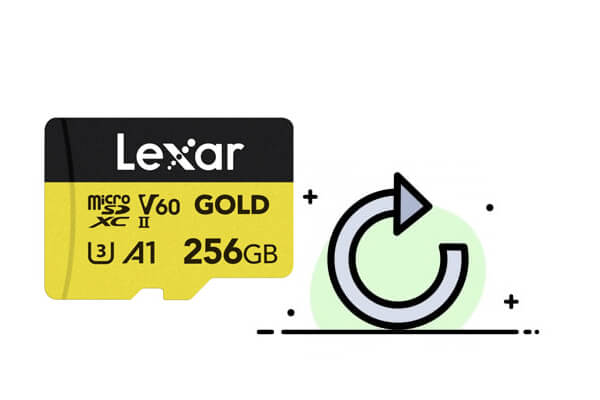
Understanding the reasons behind data loss can help you prevent future mishaps. Common causes include:
Accidental Deletion: Mistakenly deleting files while managing data.
Formatting: Unintentionally formatting the SD card erases all stored files.
Corruption: SD cards can become corrupted due to improper handling or malware.
Hardware Damage: Physical damage to the SD card can lead to data inaccessibility.
File System Errors: Errors during file transfers can disrupt the file structure, making data unreadable.
Is it possible to recover data from an SD card? The answer is yes. Here are the best methods to recover data from your Lexar SD card, regardless of the cause of loss.
Coolmuster Lab.Fone for Android is a professional SD card recovery application. With just a few clicks, you can restore deleted photos, videos, documents, and music from external storage. The software lists your specific files on the interface, allowing you to preview deleted files before recovery. Moreover, it effortlessly retrieves deleted files from Android internal storage as well.
Key features of Coolmuster Lab.Fone for Android:
How to use this Lexar data recovery tool to restore your data from a Lexar SD card?
01Install and launch the program on your computer (choose the Windows or Mac version according to your PC).
02Select the "SD Card Recovery" mode from the top menu, and you'll see an interface as shown below. At this point, you need to connect the Lexar SD card to your computer using an SD card reader.
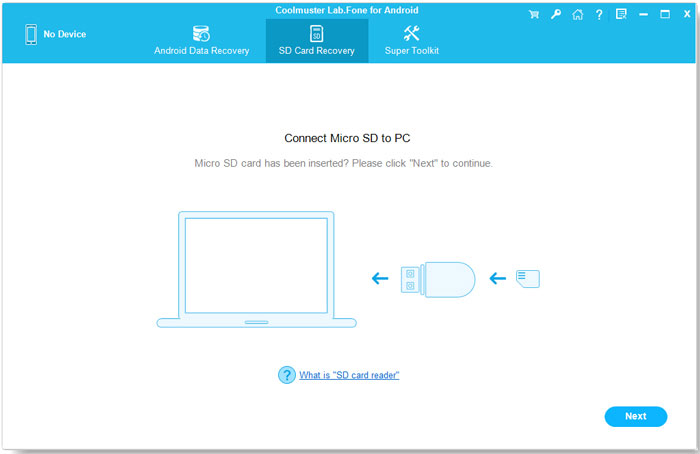
03Click "Next", and you'll see a list of all inserted SD cards on your computer. Simply check the disk drive you want to scan and click "Next" to initiate the scanning process.
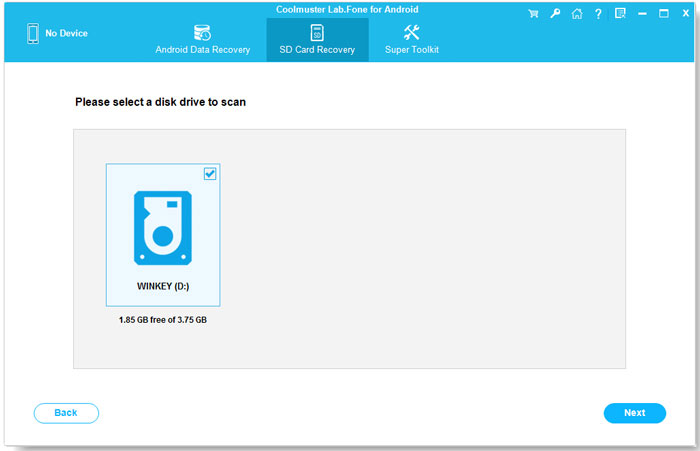
04Once the scanning is completed, a list of recoverable file types will be displayed. You can preview the files and select the ones you want to restore. Afterward, click the "Recover" button to save the selected files on your computer.
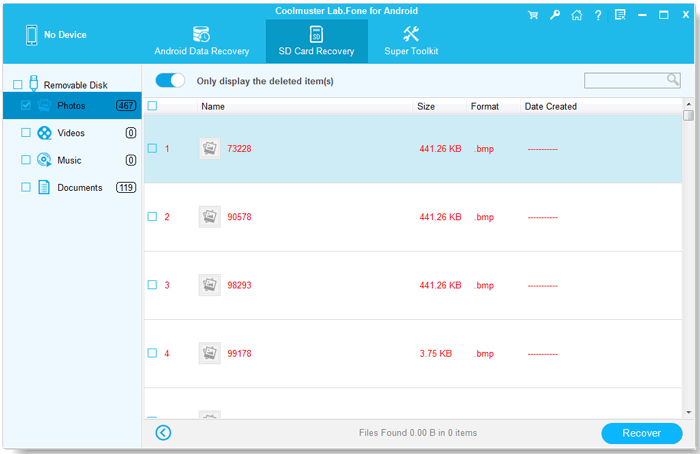
Video guide
Coolmuster Data Recovery, another product under Coolmuster's umbrella, can also assist you in effortlessly recovering data from a Lexar SD card. Designed to help users retrieve deleted, formatted, or inaccessible files from internal and external hard drives, USB flash drives, digital cameras, memory cards, iPods, MP3/MP4 media players, and other portable devices and removable storage devices, this product solves all your problems in just a few simple steps, making it accessible to both tech novices and professionals alike.
Why is Coolmuster Data Recovery so remarkable?
How to recover deleted files from a Lexar flash drive?
01Firstly, launch the data recovery software to access the interface and connect your Lexar SD card to the computer.
02From the left, select the "Deleted Recovery" mode, choose the partition you want to recover, and click "Start Scan" to proceed.
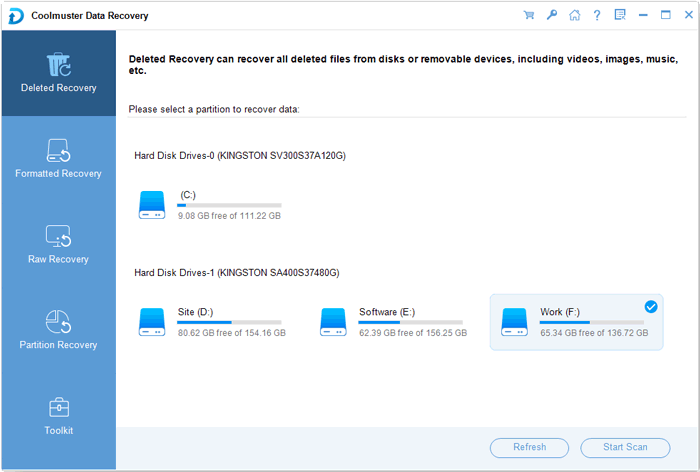
03Once the scan is complete, all data from the Lexar SD card will be displayed on your computer. You can check the files by file type or file location.
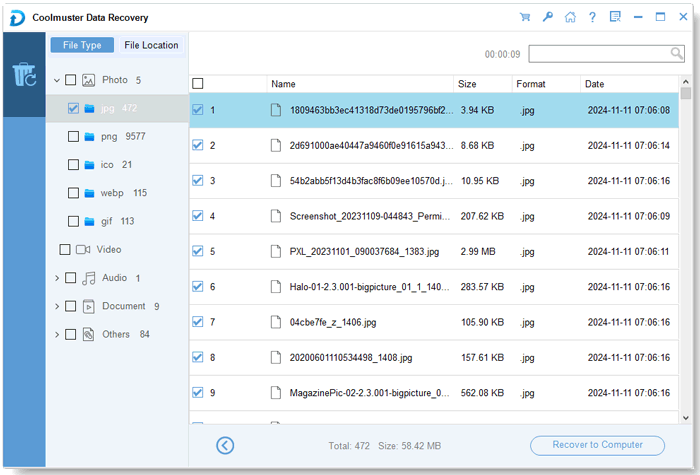
04After selecting the files you wish to recover, click the "Recover to Computer" button to start restoring the lost data. A dialog box will then pop up for you to define an output folder to save these recovered data. Simply customize a folder and click "OK" to automatically initiate the recovery process.
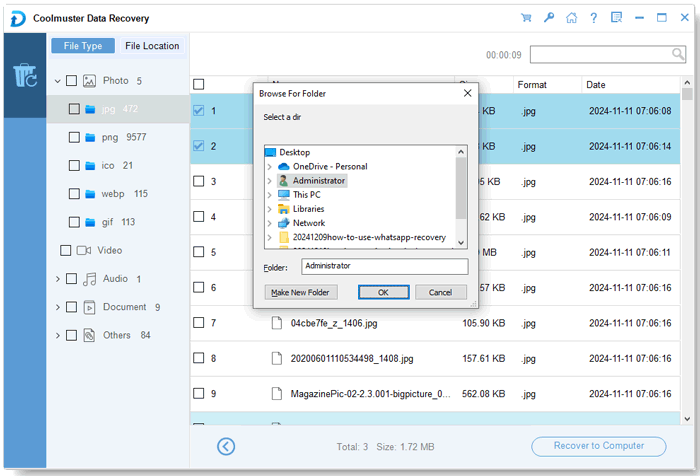
Lexar actually provides its own data recovery tool for its SD cards, and this software is free of charge. However, there are some issues: this tool only offers basic scanning. This means you can't recover the file system or files while retaining their original filenames. It also struggles to recover less common professional file types, such as RAW photos or videos, .psd files, .lrcat files, and more. Additionally, it cannot be downloaded in the United States. If you don't mind these limitations, you can follow these steps to complete the Lexar data recovery:
Step 1. First and foremost, download the Lexar recovery tool from Lexar's official website.
Step 2. Unzip the zip file. Then, connect your Lexar memory card to your computer and open the Lexar recovery tool.
Step 3. Next, select the disk from which you want to recover files and choose the location where you want to save the recovered data.
Step 4. After that, select the file types you want to recover, or click "All Types" to allow the application to scan for all file types. Then, click "Next".
Step 5. Once the scanning is complete, select the files you want to recover and click "Recover".
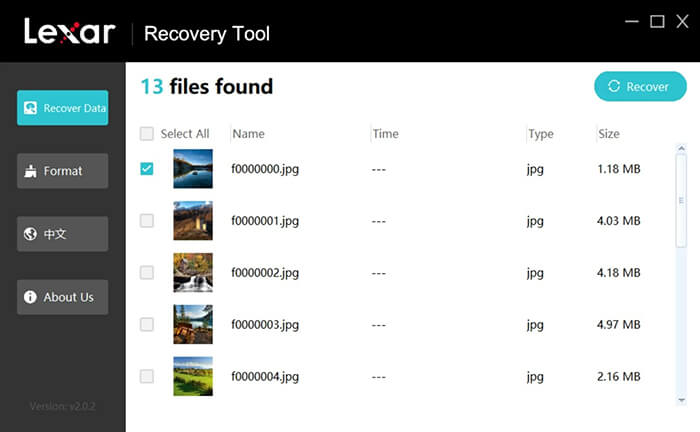
Step 6. Be patient and wait for the recovery process to finish. You will receive a pop-up notification indicating that all files have been recovered. Click "OK" to close the pop-up and continue with file recovery or go to the location you provided to check the files.
File History is a built-in Windows feature that allows users to recover lost files if backups were previously enabled. If you have previously backed up your files, you can use Windows File History to recover files from your Lexar SD card. Here's how you can do it:
Step 1. Insert your Lexar SD card into a Windows computer.
Step 2. Navigate to "Settings" > "Update & Security" > "Backup" > "More options".
Step 3. Click on "Restore files from a current backup".
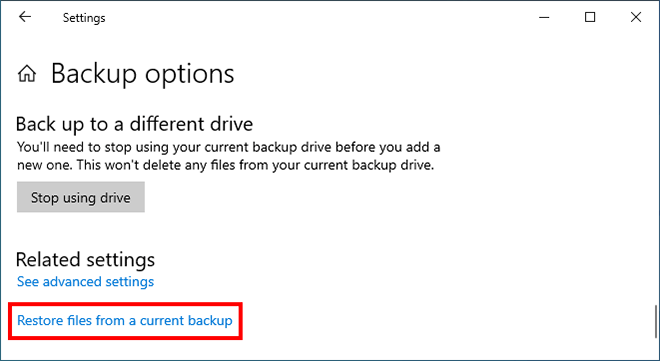
Step 4. Select the desired items, navigate to "Settings (gear icon)" > "Restore to", and choose the destination. Alternatively, you can click the "green Restore" button to restore files to their original location on the Lexar SD card.
If you're a Mac user and have previously backed up your files using Time Machine, you can also follow these steps to recover data from a Lexar SD card via Time Machine:
Step 1. Connect your Lexar SD card to your Mac.
Step 2. Navigate to "Apple Menu" > "System Settings" (macOS Ventura or later) or "System Preferences" > "Time Machine", and check the box to "Show Time Machine in the menu bar".
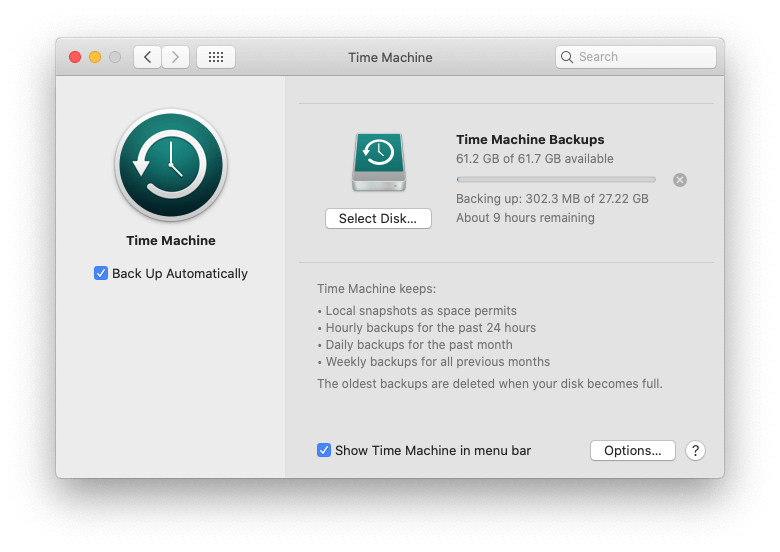
Step 3. Click on the "Time Machine" icon (a clock with a counterclockwise arrow) in the menu bar, and then click "Enter Time Machine".
Step 4. Open the folder on the Lexar SD card that contains the lost files, and use the timeline arrows on the right to browse through previous backups. Select the desired items and click "Restore".
Now, recovering data from a Lexar SD card doesn't have to be a daunting task. Both Lexar Recovery Tool, Windows File History, and Mac Time Machine can serve the purpose, but they all have certain limitations. Therefore, we recommend using Coolmuster Lab.Fone for Android and Coolmuster Data Recovery instead. Both tools offer advanced features and user-friendly interfaces, making them reliable choices for all levels of users. Additionally, taking preventative measures, such as regular backups and proper handling of your SD card, can help you avoid similar issues in the future.
Related Articles:
Samsung SD Card Data Recovery: How to Recover Data from Samsung SD Card
How to Recover Deleted Videos from SD Card: SD Card Video Recovery (Proven)
Micro SD Card Recovery: How to Recover Deleted Files from Micro SD Card (Full Guide)
How to Recover Files from Formatted SD Card in Android [Solved]





